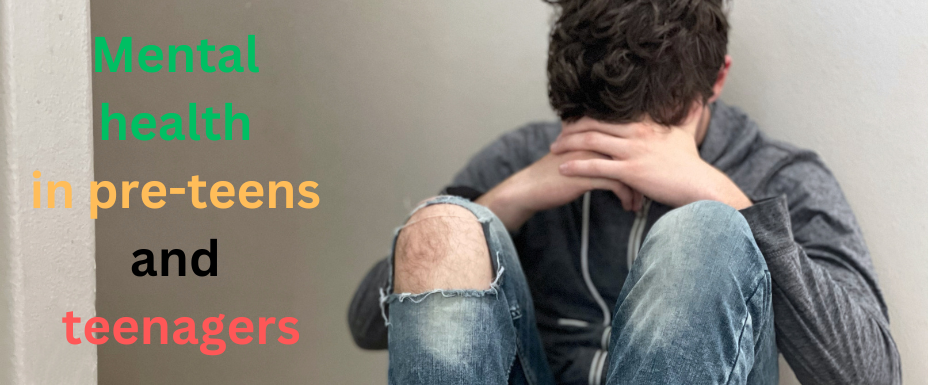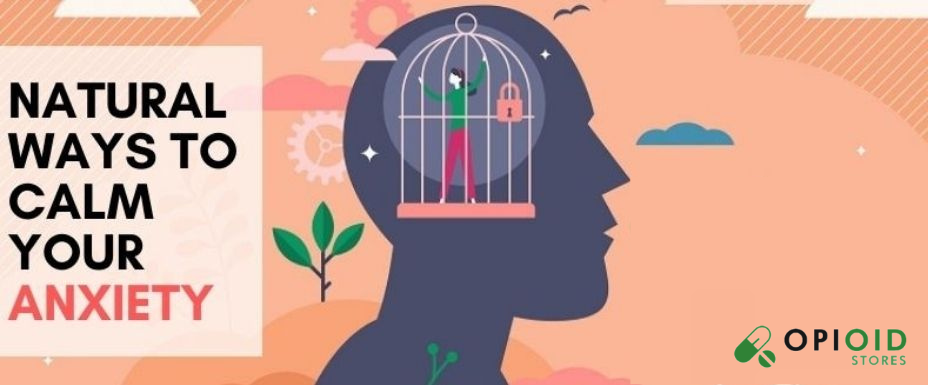Mental health in pre-teens and teenagers
An Overview
This article throws light upon the mental health issues of modern times’ pre-teens and teenagers. Adolescence is a tender period where the foundation builds up for every emotion and behavior.
This period demands high monitoring by parents and constant emotional support. Any event related to school life or personal life could influence their mentality.
Often the mental health of teens is affected by the external environment which leads to mental disorders like anxiety, depression, and other behavioral disorders.
As per the survey, one in every seven teenagers of 10-19 years experiences a mental illness. These problems stay with them in adulthood also, if not resolved timely.
How can a pre-teen or teenager get a mental illness?
Multiple factors affect the emotional and social skills of teenagers. In this sensitive period of pre-teen life, everything around them affects the mental growth of adolescents.
Primarily, the environment they get at home. Family life problems, violence, abuse, sexual abuse, financial crisis, death of someone close, strict parenting, all these things considerably decide the mental pattern of development for teens.
Teens may get anxiety issues, feel depressed, or get impulsive behavioral conditions.
Stepping outside the house, school, or college life acts as a second home to the teen. The behavior of teachers, classmates, and friends sometimes affects more than usual the teenager’s mental health.
Such imprints stay with them lifelong. Strict punishments, violent fights with fellow students, verbal abuse or physical abuse, poor academic results, ignorance, peer pressure, and similar factors could be a reason for developing a mental condition.
Social media and technology are getting other peculiar factors in modern times. Pre-teens and young teenagers often spend long hours with electronic gadgets. They are highly addicted to video games, and social media platforms. Apart from becoming lazy and getting their eyes affected, they may also get anxiety issues. Sleeping disorders are also commonly reported.
Some cases are due to genetic factors like ADHD or Attention Deficit Hyperactivity Disorder.
How to Know If a teenager has a mental illness?
It is crucial to address the issues of teenagers at an early stage. Mostly they remain unrecognized and unresolved. Some of the common signs that indicate the presence of a mental illness among teens could be noted and treated.
You may observe changes in the sleeping pattern of that teenager. They may either sleep too little or too much.
The subject will lose interest in many things that he loved earlier. You may observe him mostly sitting upset or stressed.
They shall lose their appetite. Weight changes can be seen. They may get weak and get tired soon after little work.
Lack of concentration in studies and other daily work is also seen.
Suicidal thoughts may also occur in severe cases. The self-harming tendency is evolved. They may feel demotivated and lose their interest in life.
How can mental illness be harmful to teens?
Mental illness drastically affects the lives of teenagers. The adolescence period is affected seriously, which affects the emotional and social behavior of youngsters.
They may get habits of smoking, alcohol, or other harmful drugs. Wrong friendship may divert their minds towards recreational and unproductive stuff.
They may get into depression which can cause cardiac diseases in the long run. Anxiety and other behavioral issues led them to suicidal thoughts.
The self-harming tendency is evolved. They may get violent with others as well.
Poor mental growth may often lead to vision problems.
Low-income family life often leads to the development of bipolar disorder. Youngsters may start imagining excessively about their dream luxuries and social life.
Mental illness unresolved often leads to criminal-mindedness. Psychosis is often reported at long-run age.
Poor academic performance is observed, which even worsens their depression. They get upset and worried all the time. Such teens lack failure management ability.
Unresolved teenage mental illness stays lifelong and ruins relationships and social life.
What are the ways to deal with mental illness among teenagers?
Though it is a crucial challenge, mental conditions among teenagers can be treated. Experts suggest behavioral therapies and counseling sessions. They are emerging as an effective weapon against many mental diseases worldwide. Proven results are produced at a large scale.
Parents should try first at their level to recognize the actual reason for their child’s illness. Creating a healthy environment at home is the most necessary step for the treatment. They can consult a teenage psychology expert for practical tips to handle their children.
Talk to them. Ask about their worries. Discuss the school life or friend circle with them and identify the root cause of their depression. Maintain a friendly tone and avoid harsh parenting.
Take them to counseling sessions. Tell them about the therapy in a positive approach. Let them express themselves completely.
You may encourage them for lifestyle changes. Ask them to sleep timely at night. Give them a healthy diet. Encourage them for creative work like painting, writing, dancing, etc. You may try music therapy.
Spend time with them. Talk about various experiences of life and share funny incidents. Watch good content with them. Try to involve them in outdoor sports rather than mobile phones or video games. This will boost their confidence.
Discuss with them about academic life. Teach them to handle failure and move on. Do not pressurize them for anything. Try to be friendly with them. This way, they could freely express their emotions with you and get relief from depression.
Raise a helping hand towards them at the right time. Unresolved mental conditions may become fatal after some time. Mental illness at an adult age becomes even more challenging to deal with. It deteriorates the quality of life, relationships, and opportunities to progress.



